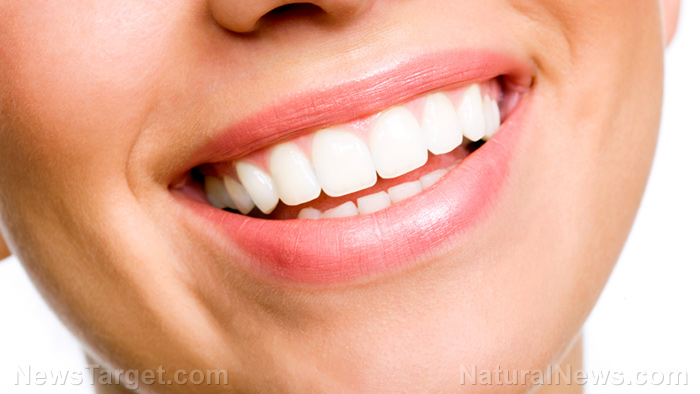Prevent periodontal disease with the myrobalan, a native fruit of South Asia
09/06/2018 / By RJ Jhonson

You don’t hear a lot of talk about periodontal disease, but it is actually more common than you may think. A study published in the journal BMC Complementary and Alternative Medicine discusses how the ethanol extracts of the myrobalan (Terminalia chebula) (EETC) can be used to remedy the problem.
Periodontal disease is a broad term referring to an infection in the structures surrounding your teeth. These include your gums, the alveolar bone, and the periodontal ligament. There are two stages of periodontal disease: gingivitis and the more severe periodontitis.
Gingivitis is referred to as the initial stage of periodontal disease. It mainly affects the gums, causing inflammation, swelling, redness, and bleeding in the margins around the teeth.
In certain instances, gingivitis can worsen and become periodontitis, in which case the disease affects even the bone and ligaments in the gums. This stage is characterized by the formation of gaps between the gums and the teeth, which then lead to the loosening of the latter.
Periodontal disease is so silent and so often ignored, you’d be surprised at how many people have it. A 2010 study by the Centers for Disease Control and Prevention (CDC) indicates that nearly half – at least 47 percent, that is – of Americans have mild, moderate, or severe periodontitis. Incredibly enough, this percentage goes even higher in older adults. About 70.1 percent of adults 65 years old and older have the condition.
Unfortunately, there are several reasons you should not ignore periodontal disease. Not only does it lead to stinky breath and a higher chance of your teeth falling out, but it also has sinister links to some major conditions. These include inflammation-related diseases like heart disease, diabetes, osteoporosis, and respiratory disease. Periodontal disease also raises your risk of developing kidney cancer by 49 percent, pancreatic cancer by 54 percent, and blood cancers by 30 percent.
Mother Nature's micronutrient secret: Organic Broccoli Sprout Capsules now available, delivering 280mg of high-density nutrition, including the extraordinary "sulforaphane" and "glucosinolate" nutrients found only in cruciferous healing foods. Every lot laboratory tested. See availability here.
Periodontal disease is caused by the activity of oral bacteria. They exist in the form of a colorless biofilm called the dental plaque. They consist of several species, such as Streptococcus mutans and Aggregatibacter actinomycetemcomitans, and are collectively called dental plaque bacteria (DPB). These microorganisms secrete toxins, such as lipopolysaccharides (LPS) that interact with the immune system and trigger an inflammatory response.
The Korean researchers who conducted the study wanted to uncover the effects of EETC on the activities of DPB. To do this, they created cultures of S. mutans, A. actinomycetemcomitans, and DPB and administered the EETC treatment. They used ampicillin, an antibiotic, as a reference.
They also investigated the ability of EETC to ameliorate inflammation caused by LPS and explored the extract’s ability to prevent osteoclastic bone resorption. This is the process wherein calcium in the bones and teeth are broken down and returned to your blood. Although this process is natural and benefits other parts of your body, such as your muscles, it can lead to weaker bones when it occurs at a higher rate than bone formation.
The researchers discovered that EETC was able to suppress the growth of DPB. The extract also reduced the induction of cytokines and proteases, substances released by your immune system that lead to inflammation. In other words, EETC proved effective in countering both the cause and the primary symptom of periodontal disease.
The extract was also found to have inhibitory effects on the action and formation of osteoclasts, the cells that put bone resorption into action. This way, EETC was found to contribute to the postponement of the bone resorption process.
Based on their findings, the researchers concluded that EETC might be beneficial in preventing periodontal disease caused by the presence and the activities of DPB.
Learn more about your teeth at Dentistry.news.
Sources include:
Tagged Under: dental health, dental plaque bacteria, disease causes, food is medicine, gingivitis, good food, healthy teeth, Myrobalan, natural remedies, oral health, periodontal disease, periodontitis, research, Terminalia chebula




















